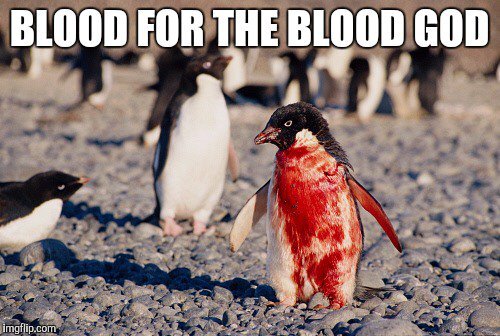Or at least they’re going to try. Patreon’s lawyers are now running around making ludicrous threats about how they are going to overturn California’s consumer protection laws, Patreon’s own Terms of Use, and the JAMS arbitration rules by shrieking very loudly about how unfair it is for Patreon’s users to make it live up to the terms of its own contract. It’s a bold move, Cotton, and it’s obviously inspired by Patreon’s hope to go public before the markets crash.
When is the Patreon IPO date?
The official date for the Patreon IPO has yet to be announced, but it will become public information once Patreon publicizes their paperwork with the Securities Exchange Commission (SEC). As of February, they maintained a confidential filing to keep investors out of the loop for as long as possible. While it sounds malicious, it’s quite common—particularly during an era of extreme unpredictability in the market and economy alike.
What investors need to know ahead of the Patreon IPO
Regardless of what method the company uses to get to market, investors ought to act with caution and ensure they do adequate research before putting money into any company or security. This is called doing your due diligence, and it is truly up to every individual investor to do so.
While a direct listing may seem “easier” to access for retail investors when compared to a traditional IPO, that doesn’t mean that it makes it a guaranteed better investment than other companies.
In regards to Patreon, the platform has seen extensive growth over the past years, and has brought on plenty of new talent to the platform as well. Their loyalty lies with the content creators that call Patreon home, as evidenced by their recent hire of Joe Budden as head of creator equity. In this role, Budden will act as a liaison of sorts between the platform and creators. It shows that Patreon is committed to a just corporate structure that benefits their creators rather than solely uplifting the executive chairs.
You might be wondering what the difference between Patreon and a GoFundMe-type platform is. Honestly, it’s a valid question whether or not you’re an investor.
Patreon’s market niche lies within their offering of month-to-month subscription services, much like a cable television subscription or other monthly subscription boxes that have gained in popularity as of late. Whereas a GoFundMe centers largely around a one-time donation, Patreon gives fans the opportunity to receive exclusive content for a monthly premium. Exclusive, a word that is usually just for show, holds substantial value on Patreon.
Creators post content that their fans won’t be able to find anywhere else, things like exclusive podcast episodes, tutorials, or access to merchandise. This adds another layer to Patreon’s appeal for both creators and fans alike.
Investors would have to be totally crazy to buy into Patreon’s IPO, especially at the obvious peak of the financial bubble. A lot of that “content that their fans won’t be able to find anywhere else” is adult content that very often crosses the line into illegal content. As of March 31, 24 percent of Patreon’s revenue is derived from NSFW content, more than half of which is NSFW games, comics, and animation. These NSFW games are some of Patreon’s top creators, bringing in as much as $98,500 in monthly revenue while blatantly violating the fake “zero tolerance” policy that supposedly bans “rape, incest, and bestiality”.
8797 Adult Drawing
8381 Adult Cosplay
6821 Adult Other
5130 Adult Comics
4164 Adult Games
3329 Adult Writing
2507 Adult Photography
1810 Adult Animation
1618 Adult Podcasts
_805 Adult Music
_224 Adult Dance & Theater
__99 Adult Magazine
__76 Adult Crafts
Patreon would be a horrible investment, because as soon as the big payment processors take 10 seconds to look at how Patreon put on their little “oh, we’re totally cleaning things up now, yessiree” performance, they’ll see right through the charade. At the end of 2017, when the crackdown supposedly took place, Patreon had under 20,000 NSFW creators bringing in an estimated $2.5 million in monthly revenue. At the end of March 31, 2021, Patreon had 43,761 NSFW creators bringing in an estimated $6 million in revenue. Some crackdown.
In other words, a not-inconsiderable portion of the exclusive content they are advertising can’t be found anywhere else can’t be found anywhere else because it is illegal. And the very worst stuff is what brings in the most money. Innocuous-sounding “games” like “Summertime Saga” and “Wild Life” go well beyond what you likely imagine NSFW game content to be, while other more openly dire creations are even worse than they sound. We’re not talking about Grand Theft Auto or Doom here, and despite being less than one-tenth of the NSFW creators, these obscene so-called games bring in about one-third of the aforementioned $6 million every month for the Filth Factory.
In addition to attempting to keep the full extent of their NSFW content under wraps, the reason Patreon is attempting to keep investors out of the loop is because the Filth Factory doesn’t want to let them know how much investor money has been blown on totally unnecessary litigation expenses, which based on the lawyer’s rants could already be rapidly approaching their entire annual net revenue for 2020. Now, imagine what would have happened if Sargon and all the others who were deplatformed had decided to stand up for their rights for once rather than whining and crying on the sympathy circuit.
Patreon wrongly thought that the Bears were afraid of court and tried to use it to get them out of arbitration. Now they’re doing precisely the opposite by trying to keep the Bears in arbitration, out of court, and off the public record. If you think about it, it shouldn’t be too hard to figure out their motivation.

